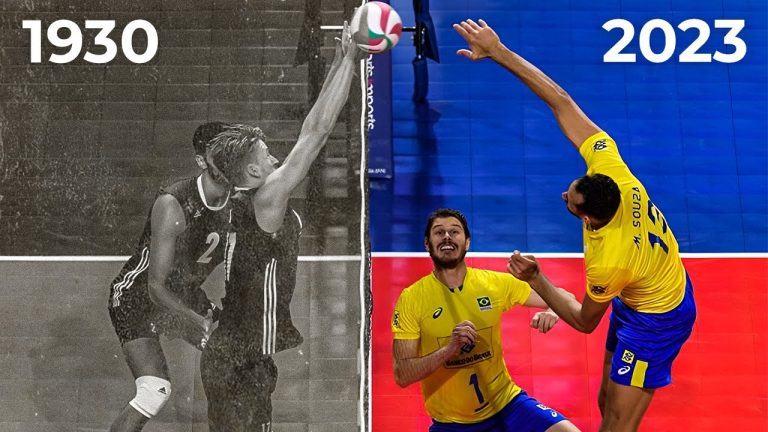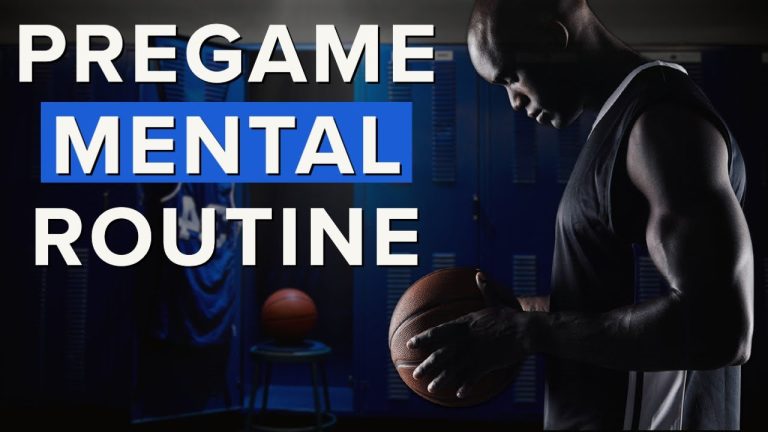
Volleyball, a sport loved by millions worldwide, is not only a thrilling game of skill and teamwork but also a platform that emphasizes fairness and sportsmanship. From the grassroots level to professional leagues, the spirit of fair play is deeply ingrained in every facet of the game. In this article, we delve into the various aspects of volleyball that prioritize fairness, from unbiased officiating to the players’ unwavering commitment to honesty and respect. Join us as we explore how this beloved sport continues to set an exemplary standard for fairness in the world of athletics.
- Equal opportunities: Emphasizing fairness in volleyball means providing equal opportunities for all players to participate and contribute to the game, regardless of their skill level or experience.
- Fair play: Fairness in volleyball includes promoting good sportsmanship and fair play among all players. This involves respecting the rules, making unbiased decisions, and treating opponents with respect and integrity.
- Inclusive environment: Emphasizing fairness in volleyball also means creating an inclusive environment where everyone feels welcome and valued. This includes addressing any forms of discrimination, promoting diversity, and ensuring that everyone has an equal chance to succeed and enjoy the sport.
- Transparency and accountability: To emphasize fairness in volleyball, it is important to have transparent processes and hold individuals accountable for their actions. This involves clear communication of rules and regulations, fair enforcement of penalties, and addressing any complaints or disputes in an unbiased manner.
What is the importance of fair play in volleyball?
Fair play is of utmost importance in volleyball as it serves as the foundation of ethical behavior within the sport. It is imperative to adhere to the rules and regulations of the game, ensuring a level playing field for all participants. By upholding fair play, athletes demonstrate their integrity and respect for both their opponents and the sport itself. This commitment to honest competition fosters a positive and inclusive environment that enhances the overall experience for everyone involved.
Engaging in unsportsmanlike conduct not only tarnishes the integrity of volleyball but also undermines the spirit of fair play. Cheating, deliberate fouls, and attempting to deceive officials have no place in the sport. Such actions not only violate the principles of fair play but also create an unfair advantage for the perpetrator and can lead to a breakdown in trust between competitors. It is essential for players to uphold the ideals of fairness and sportsmanship, ensuring that the game remains a true test of skill, teamwork, and strategy.
By emphasizing fair play, volleyball cultivates a sense of fairness, respect, and camaraderie among its participants. This shared commitment to playing by the rules helps build a positive and supportive community within the sport. Fair play fosters an environment where athletes can thrive, learn, and grow while promoting mutual respect and understanding. Ultimately, by valuing fair play, volleyball not only promotes ethical behavior but also enhances the overall enjoyment and integrity of the game.
What are some fair examples in sport?
Fairness is at the core of sportsmanship and is highly valued by athletes and parents alike. It encompasses various aspects, such as adhering to the rules, showing respect towards opponents, and demonstrating good sportsmanship. By playing by the rules, athletes ensure a level playing field where everyone abides by the same guidelines, creating a fair competition. Respecting opponents involves recognizing their skills, treating them with dignity, and refraining from unsportsmanlike behavior. Furthermore, displaying good sportsmanship involves acknowledging both victory and defeat with grace, showing respect towards officials’ decisions, and fostering an atmosphere of fair competition. These examples of fairplay in sports not only enhance the integrity of the game but also promote a sense of camaraderie and mutual respect among athletes.
What is the meaning of fairness in sports?
Fairness in sports encompasses two main aspects: obeying the rules and embodying a sporting spirit. The concept of “Fair Play” involves displaying attitudes and behaviors that align with the understanding that sports are an ethical endeavor. It explicitly rejects acts of violence, cheating, substance abuse, or any form of exploitation aimed at achieving victory. In essence, fairness in sports promotes a respectful, honest, and honorable approach to competition.
By adhering to the rules, athletes ensure a level playing field where everyone has an equal chance to succeed. Fairness means recognizing that the rules are designed to create a fair and balanced environment for all participants. It requires a commitment to following these rules, regardless of personal gain or advantage. This commitment to fairness not only upholds the integrity of the game but also fosters an atmosphere of trust and respect among competitors.
Additionally, fairness in sports is demonstrated through a sporting spirit. This involves displaying qualities such as sportsmanship, respect, and integrity. Athletes who embody a sporting spirit compete with a sense of honor, treating their opponents with respect and dignity. They understand that winning is not the sole objective, but rather the pursuit of excellence while maintaining ethical conduct. A true display of fairness in sports goes beyond winning or losing and places emphasis on the values and principles that make sports a positive and enriching experience for all involved.
Leveling the Playing Field: Championing Fairness in Volleyball
Leveling the Playing Field: Championing Fairness in Volleyball
In the realm of competitive sports, one game stands out for its unwavering commitment to fairness and equality: volleyball. With its strict rules and emphasis on teamwork, volleyball has successfully leveled the playing field, ensuring that every player has an equal opportunity to shine. From the moment the ball is served, players must rely on their skills and strategy, rather than their physical attributes or personal advantages. This not only creates a sense of fairness, but also fosters an inclusive environment where athletes of all backgrounds can come together and compete on an equal footing. By championing fairness in volleyball, we are not only promoting sportsmanship, but also setting a powerful example for other sports to follow.
Striving for Equality: Uniting Players through Fair Play in Volleyball
In the pursuit of equality and fair play, volleyball serves as a unifying force that brings players from diverse backgrounds together. On the court, it doesn’t matter one’s gender, race, or social status; what matters is skill, teamwork, and the love for the game. Volleyball creates a level playing field where everyone has an equal opportunity to showcase their abilities and contribute to the success of their team. Through fair play, mutual respect, and camaraderie, volleyball bridges the gaps between individuals and fosters a sense of belonging, highlighting the power of sports to transcend societal barriers and promote unity among players.
Empowering Athletes: Prioritizing Equity in the World of Volleyball
As the world of volleyball continues to evolve, it is crucial to prioritize equity and empower athletes from all walks of life. Every player, regardless of gender, race, or background, deserves equal opportunities to showcase their skills and reach their full potential. By promoting inclusivity and breaking down barriers, we can create a level playing field where talent and hard work are the only factors that determine success. Let’s come together as a community and champion diversity in volleyball, ensuring that every athlete feels supported, valued, and empowered to excel.
In order to empower athletes and prioritize equity in the world of volleyball, it is important to address systemic biases and promote fair representation in all aspects of the sport. This includes equal access to resources, training facilities, and coaching opportunities for athletes of all genders and backgrounds. Additionally, fostering an environment that celebrates diversity and encourages inclusion can help athletes feel supported and valued, regardless of their differences. By actively working towards creating a more equitable volleyball community, we can unlock the full potential of athletes and pave the way for a brighter and more inclusive future in the sport.
In the dynamic world of volleyball, where passion and skill collide, one aspect remains paramount – fairness. By upholding the principles of fairness, players, coaches, and officials ensure a level playing field that fosters growth, sportsmanship, and healthy competition. With every serve, spike, and block, the emphasis on fair play resonates, creating an environment where integrity and respect prevail. As the final whistle blows, it becomes clear that in the realm of volleyball, fairness is not just a goal, but a fundamental ingredient that elevates the sport to new heights, captivating both players and spectators alike.





